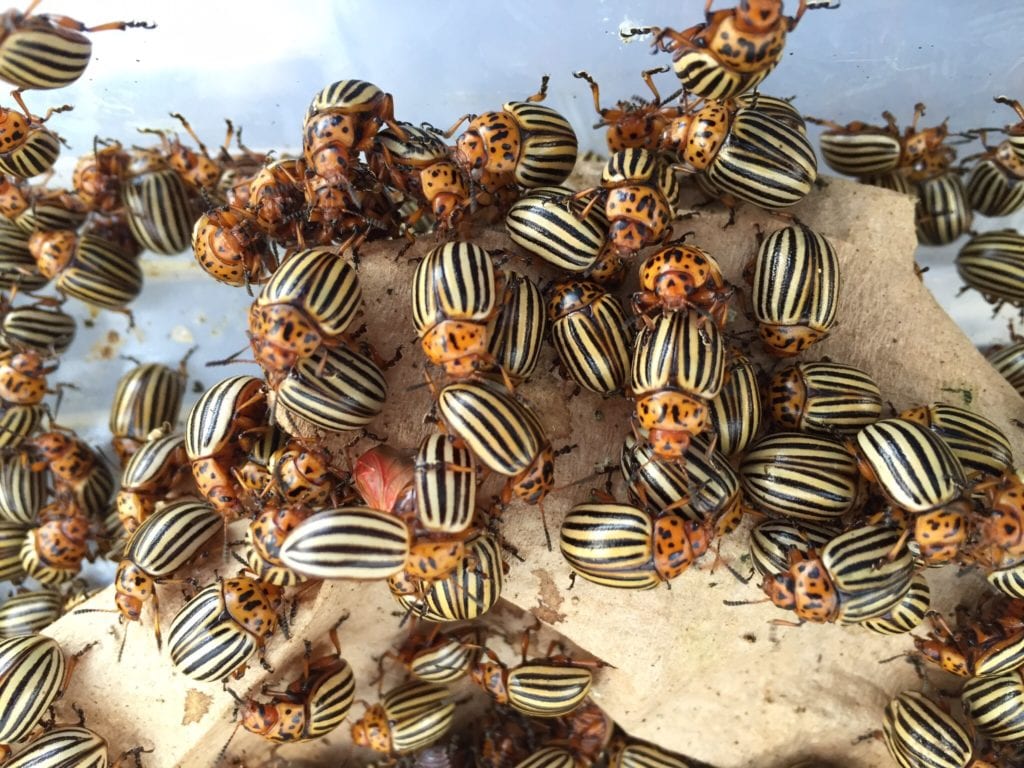Genes probed for clues to pest’s adaptability to new environments and insecticides
By Eric Hamilton, University of Wisconsin-Madison College of Agricultural and Life Sciences

The Colorado potato beetle is notorious for its role in starting the pesticide industry and for its ability to resist the insecticides developed to stop it.
Managing the beetle costs tens of millions of dollars every year, but this is a welcome alternative to the billions of dollars in damage it could cause if left unchecked.
To better understand this tenacious pest, a team of scientists led by University of Wisconsin-Madison entomologist Sean Schoville sequenced the beetle’s genome, probing its genes for clues to its surprising adaptability to new environments and insecticides.
The new information sheds light on how this insect jumps to plant hosts and handles toxins, and it will help researchers explore more ways to control the beetle.
Schoville and colleagues from 33 other institutes and universities reported their findings in the January 31, 2018 issue of Scientific Reports.
The Colorado potato beetle’s rapid spread, hardiness and recognizable tiger-like stripes have caught global attention since it began infesting potatoes in the 1800s.
The beetle was investigated as a potential agricultural weapon by Germany in the 1940s, and its postwar spread into the Soviet bloc stoked an anti-American propaganda campaign to pin the invasion on outsiders.
More benignly, it has been featured on many countries’ stamps and is used in classrooms to educate about insect lifecycles.



